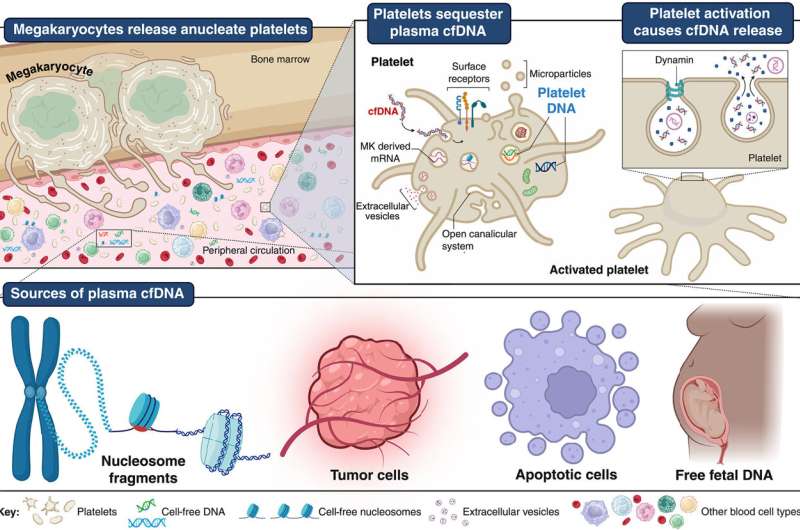The study, led by the University of Oxford and published in Science, has revealed that platelets act as scavengers, capturing and storing fragments of DNA circulating in the blood, including mutated DNA in patients diagnosed with cancer.
When cells die, they release genetic material into the bloodstream, triggering unwanted immune responses or other health problems.
Until now, scientists have not fully understood how the body clears these potentially harmful molecules, but the team’s research suggests that platelets actively absorb stray DNA, helping to clean the blood and maintain immune balance.
Analysis of platelet DNA via a simple blood test has been able to detect the presence of even pre-cancerous changes, paving the way for early and accurate cancer screening methods that are less invasive.

